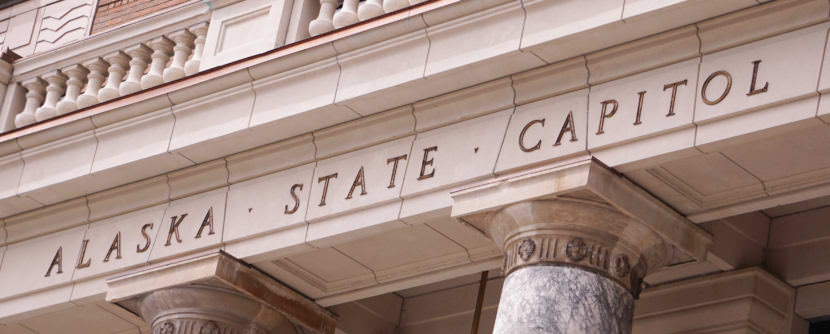
Despite a looming deadline, lawmakers made no major progress this week on reaching agreement on a state budget and a plan to balance the budget in future years.
Gov. Bill Walker tried to make progress on Monday by putting out his own compromise proposal. He didn’t get very far.
He took the Senate’s side on how to handle oil and gas taxes and the Permanent Fund, and the House’s side on this year’s state budget and the need for a broad-based tax.
But no one embraced all of his package of proposals.
Senate President Pete Kelly welcomed it, but he continued to express opposition to the elements that differ from the Senate majority’s positions.
The mostly Democratic House majority was much stronger in rejecting it, although some members signaled a willingness to work with what Walker proposed.
Kelly wants lawmakers to focus on the budget first, he said. The Republican-led Senate majority may be willing to live with just passing the budget – putting off a decision on the Permanent Fund until later.
House members don’t want to do that – but they only want to reduce PFDs if the state also has higher oil taxes and/or a broad-based tax like an income tax. They have said that’s fairer.
Senators have said everyone agrees on the need for Permanent Fund changes, but they differ on taxes and spending.
House members have been hoping that the Senate would be swayed by public pressure over budget cuts. That hasn’t happened yet.
There’s one thing that’s certain to put pressure on both chambers – the state government shutting down in the event that they don’t pass a budget.
There’s a conference committee that’s making slow progress on the budget. But it hasn’t taken on the biggest differences between the chambers – such as cuts to education and university funding, and how much to draw from Permanent Fund earnings.
The conference committee on House Bill 111, which would make changes to oil and gas taxes, met Friday. The two chambers are still far apart.
Anchorage Democratic Rep. Geran Tarr said the House majority wants to change the system so that oil and gas companies effectively pay more in taxes.
“We’ve said it’s unsustainable,” Tarr said. “We need to reduce the burden to the state treasury because it’s not affordable going forward and we hope to find a compromise on that.”
While the Senate version of the bill eliminates the tax credits that are paid out to oil companies, Tarr said it allows them under a different name.
Anchorage Republican Sen. Cathy Giessel said what the Senate has proposed is significant: Companies would no longer be able to receive tax credits before they enter production.
“It will be applicable when you’ve reached production, versus simply handing out cash for performing certain activities,” she said. “That’s a big change. The other big change, of course, is we’re no longer jeopardizing our treasury by handing out this cash.
Giessel said the Senate didn’t have time to assess the overall effect of the House’s overhaul to oil and gas taxes.
Anchorage Democratic Rep. Les Gara has noted the projected reduction in oil and gas taxes in the Senate bill as compared with the House bill is equal to the Senate’s proposed cuts to school and university spending over 10 years.
Republicans reject the comparison, saying that encouraging oil production is necessary for the economy.
Legislators have a week to work out their differences. If they don’t, then Walker will likely call another special session. Then there will be two more weeks to prevent a shutdown July 1.
